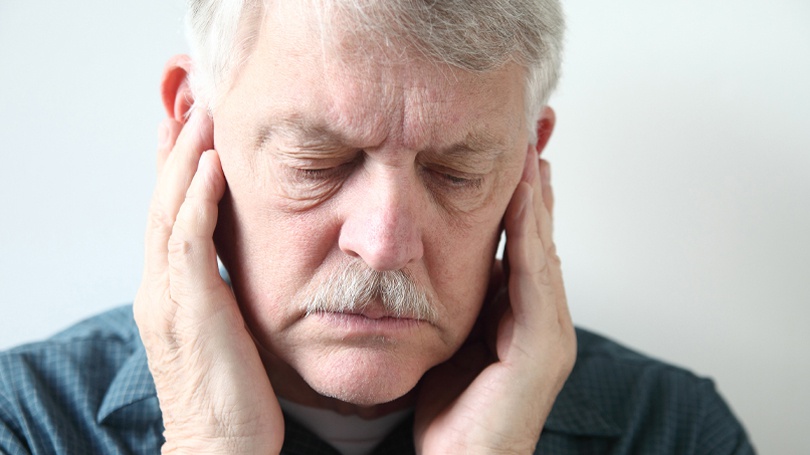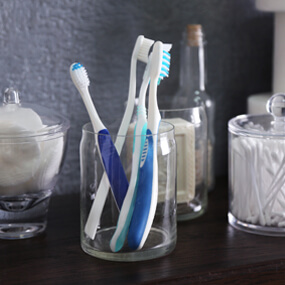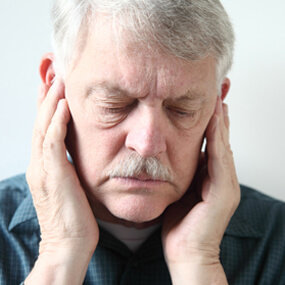TMJ Disorders: Symptoms, Causes and Finding Relief

Pain arising from your jaw can be debilitating and extend to your face, temples, ears, neck, and even shoulders. These symptoms are often related to the temporomandibular joint (TMJ), which connects the upper and lower jawbone to the skull. If you are experiencing discomfort or limited mobility of the jaw, it may mean that you have a TMJ disorder or a related condition, such as bruxism.
The TMJ is a complex joint that allows for articulation of the jaw via a series of muscles and ligaments as well as attached bones and discs. It moves your jaw forward, backward, and side to side, which enables speaking, chewing, swallowing, and even whistling. TMJ dysfunction can cause pain, make it difficult to move the jaw or limit the movement, and even create popping and other sounds during use.
Symptoms of TMJ Dysfunction
There are various symptoms that can indicate TMJ. These include:
- TMJ pain
- Pain while chewing
- Headaches
- Toothaches
- Earaches
- Dizziness
- Neck and should pain
- Persistent ringing in the ears
- Discomfort or tiredness in the face
- Swelling of the face
- Lockjaw
- Clicking or grating when moving the jaw
TMJ Causes and Risk Factors
While TMJ pain, as well as the other symptoms of TMJ, are usually readily apparent, it can often be unclear what the underlying cause is. Your dentist or doctor will perform a comprehensive evaluation in order to diagnose the causes and your particular risk factors, which can include:
- Jaw injuries
- Disc erosion
- Arthritic damage
- Chronic bruxism
- Stress or anxiety
- Poor posture
- Orthodontic braces
- Excessive chewing
- TMJ connective tissue disease
Diagnosing TMJ Dysfunction
Dentists are usually the first to diagnose TMJ among people who get regular dental checkups. Other doctors who diagnose and treat TMJ include family physicians, otolaryngologists, and oral surgeons. During an exam, your doctor will check for pain or tenderness, listen to the movement of the joint and muscles, and ask you if there is anything you do that makes it feel better or worse. Digital X-rays or even a CAT scan or MRI may be necessary to evaluate the jaw within the context of the whole.
TMJ Treatments
There are many treatments available for TMJ, and which are appropriate to you will depend on the causes and severity of the dysfunction. Lifestyle tweaks are often recommended, and these include:
- Opting for softer foods. You should avoid hard foods that can aggravate the jaw, such as nuts and pretzels. You should also avoid foods that demand a great deal of chewing. This can include thick foods, such as large sandwiches, and dense foods, such as steaks.
- Taking an over-the-counter anti-inflammatory, such as ibuprofen or naproxen.
- Emphasizing good posture while standing and sitting.
- Avoiding any unnecessary jaw movement, such as chewing gum. It may also be necessary to brace the jaw when yawning and the like in order to avoid it extending too wide.
- Practicing good jaw positioning if you have developed bad habits over time. If you have a tendency to clench your jaw, your doctor may advise techniques to break that habit.
- Using cold or warm compresses for about 10 minutes at a time to reduce swelling and discomfort.
- Employing relaxation techniques in order to better manage your stress. If your anxiety is severe, counseling may be required as well as prescribed medications.
- Actively massaging your jaw and neck muscles in order to reduce stress.
If the TMJ pain is due to an underlying physical condition, then it will be necessary to treat or at least manage that cause. Some of the treatment options available through your dentist include:
- Medication—Your dentist may advise over-the-counter medicines, such as ibuprofen, or give you a prescription for something stronger to reduce swelling, relieve pain, or relax the jaw. Your dentist will often pair this medication with jaw relaxation exercises that you can do at home.
- Oral Appliance—Custom-fit oral appliances that are worn while you sleep are an effective way to treat disorders often associated with TMJ pain, such as nighttime bruxism. Night guards are custom-made to your mouth. They can be designed to discourage and cushion clenching and grinding. If you snore or have sleep apnea, they can also be designed to maintain an open airway while you sleep.
- Restorative Dental Care—If you are suffering from poor oral health, those factors can be causing or exacerbating your TMJ pain. It may be necessary to treat malocclusion—a bad bite. You may also need to replace missing teeth either through implants, dentures, or bridges, and crowns may be recommended in order to correct imbalanced biting surfaces and other issues.
Find Relief for Your Painful Jaw
If you are experiencing any of the symptoms discussed above, Jeffrey D. Clark, DDS, strongly encourages you to schedule an appointment at Scottsdale Cosmetic Dentistry Excellence as soon as possible. Dr. Clark will perform a complete evaluation, diagnose the underlying cause, and explore your treatment options. Many of Dr. Clark’s patients have found relief through a custom-fit oral appliance that forces the jaw into an ideal position while sleeping. Call 480 585 1853 today to schedule your TMJ examination.




